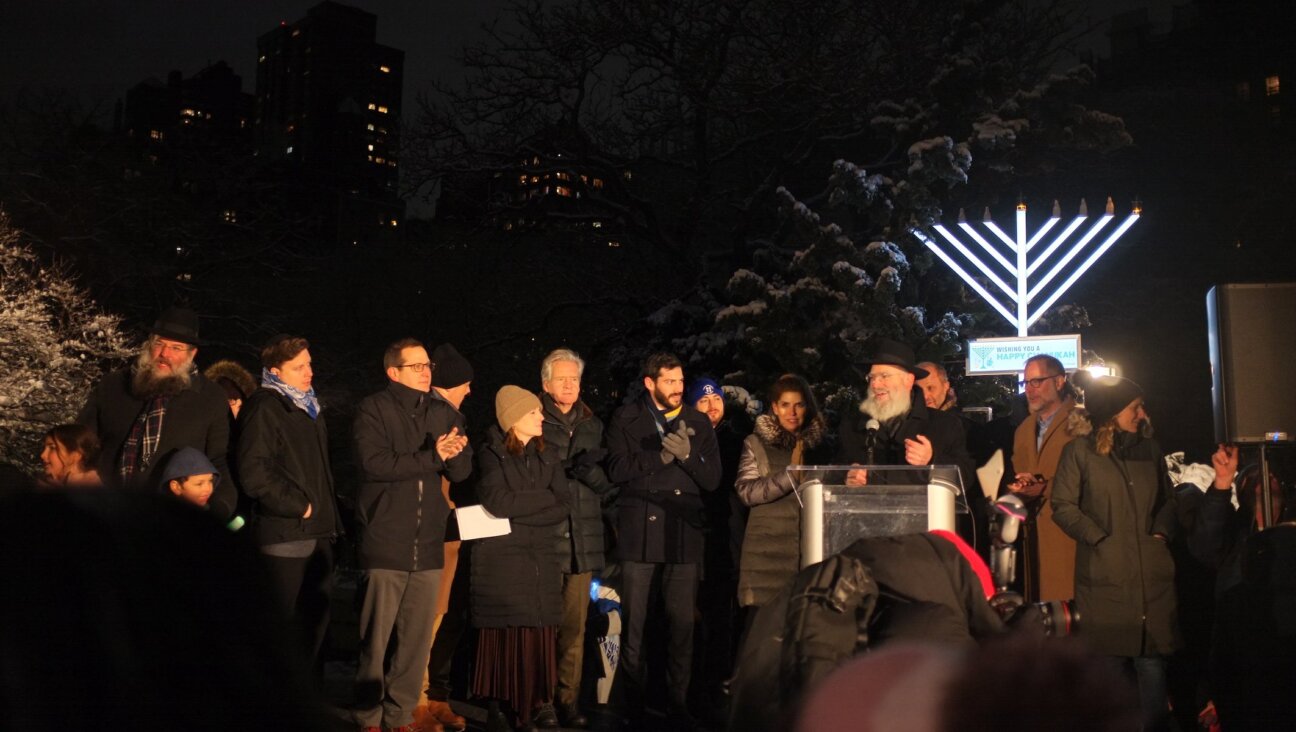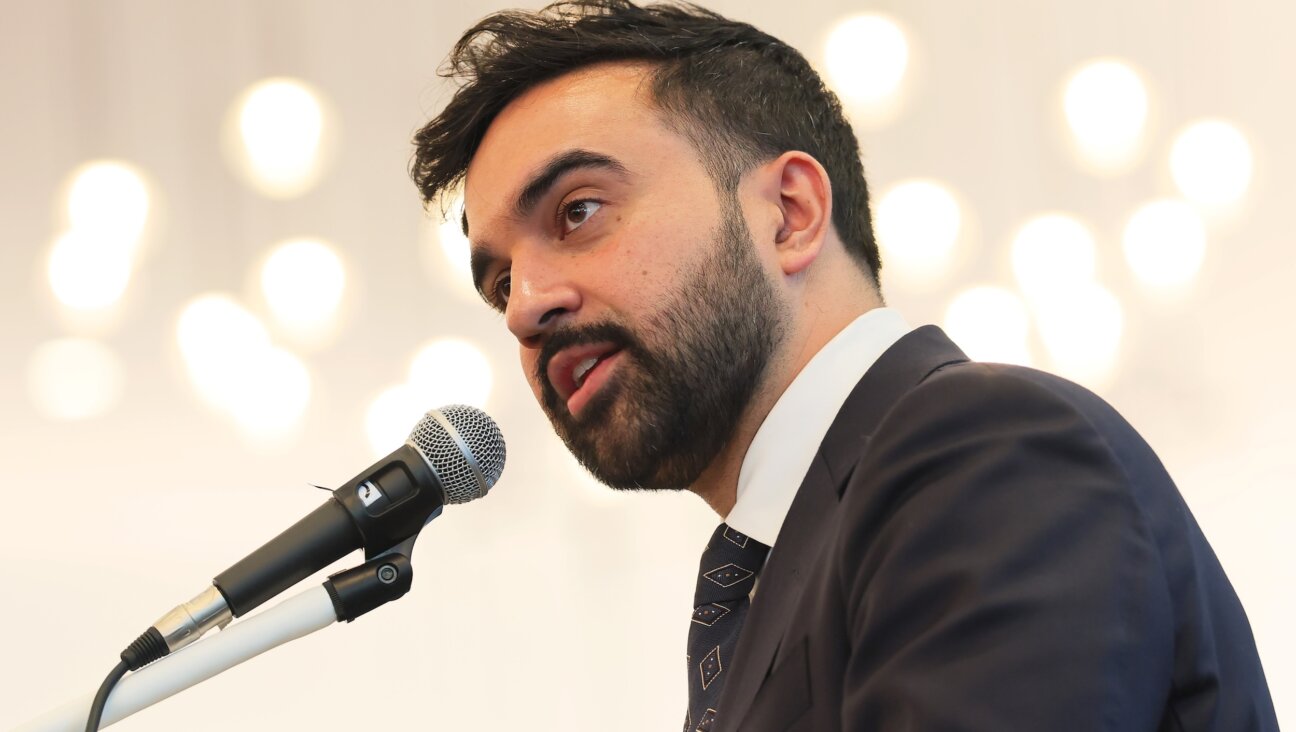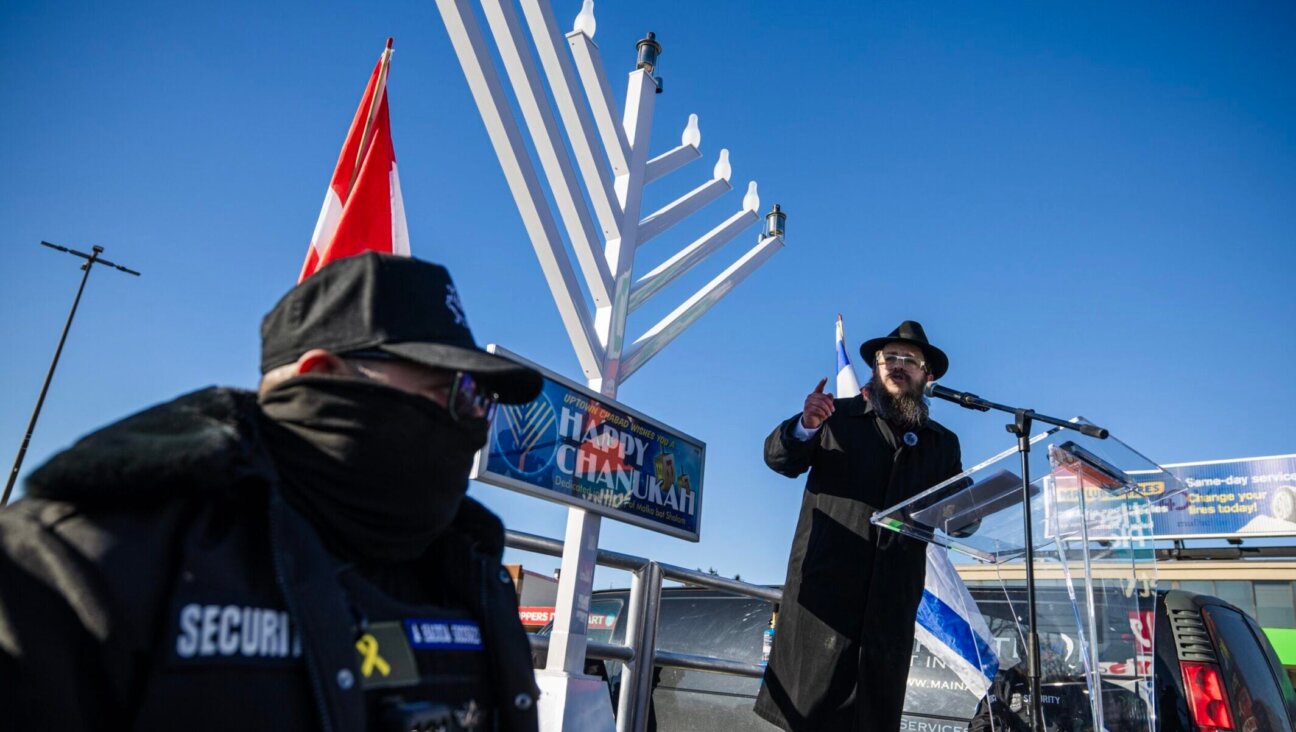Kibbutzes Empty as Gaza Rockets Rain

Image by getty images
(Reuters) — ’Residents stay in your homes! Do not go outside!’ read the text message sent at dawn to the Israelis living on a kibbutz near the Gaza border, as soldiers searched the grounds for Palestinian gunmen.
While the Nir Am kibbutz was under lockdown on Monday, a deadly battle ensued between the Israeli troops and a squad of Gaza militants, who had tunneled their way across the border and emerged about a mile away from the farm community.
Israel said it killed 10 gunmen in the battle. The military said some were wearing Israeli army uniform and were equipped with explosive belts. Four Israeli soldiers, including the commanding officer, died in the fight.
“The threat of a mortar bomb is nothing compared to a militant force of 10 men coming into our community to carry out a massacre,” said Shaike Shaked, one of the founders of a nearby Israeli africultural community, Netiv Haasara.
Three days ago, Shaked said, a tunnel opening was discovered 500 meters from his home, which has been hit twice by Palestinian rockets in the past few years.
The buzz of Israeli drones and non-stop Israeli artillery shells fired into Gaza sounded as his wife bounced their 18-month-old grandson on a trampoline in their front yard.
Gaza’s tower blocks can be seen from Netiv Haasara’s, flowering gardens and the fields where Shaked grows tomatoes.
Like other farming villages on the Gaza border, it has drawn youngsters seeking escape from bustling city life in pursuit of a slow quiet lifestyle in the remote, pastoral kibbutzim.
But since July 8, when Israel launched an offensive aimed at destroying militants’ rocket stockpiles and secret tunnel network, most of the families have abandoned the border lands.
More than 600 Palestinians, many of them civilians, have died in the fighting, along with 29 Israelis, including 27 soldiers.
UNDERGROUND GAZA
Israel has dubbed the network of subterranean passages “Underground Gaza”, which it says serves as Hamas command bunkers and houses rocket-launch silos. The military says it has discovered 23 tunnels and destroyed six so far.
Some of those cement-fortified burrows reached into Israel and since the offensive began, Palestinian gunmen have tried to cross into Israel at least four times.
“We’re already used to the rockets (fired from Gaza), but the tunnels are new,” said Amit Bing, 22, who was born in the Nir Am. “We knew about them, but we never believed it would reach so close,” she said.
Outside her home, sleeping Israeli troops were stretched across the lawn. “There are no families here anymore, they have all left,” said Bing’s neighbor, Salit Ben-Abu, 25.
Media reports suggest the military has just one dedicated tunnel-hunting unit, code named “Ferrets”, within the specialized regiment of its engineering corps – potentially no more than a few dozen commandos equipped with breathing apparatus, attack dogs and scouting robots.
The Israeli chief military spokesman, Brig-Gen Motti Almoz, formerly an anti-tunnel officer in the Engineering Corps., said each tunnel took between one to three years to build and cost hundreds of thousands of dollars.
“The fighters who use these tunnels are the elite,” Almoz told Reuters, “You don’t carry out a tunnel attack in order to come back having killed just a couple of Jews. If Hamas wants to do that, it can fire an anti-tank rocket across the border.”
Hamas armed wing, Izz el-Deen al-Qassam Brigades, said it “decisively confirms these (tunnel) operations as a retaliation for the blood of our people’s martyrs”.
Walking her dog through the empty paths of the nearby kibbutz Holit, 25-year-old Renana said the situation was “very scary”. A handful of combat vests were thrown on the grass outside, where a couple of soldiers were lying in the shade.
A few weeks ago she would have walked with her dog outside the fenced perimeter of the kibbutz. “Now we have to call kibbutz security every time we have to leave,” she said.
















